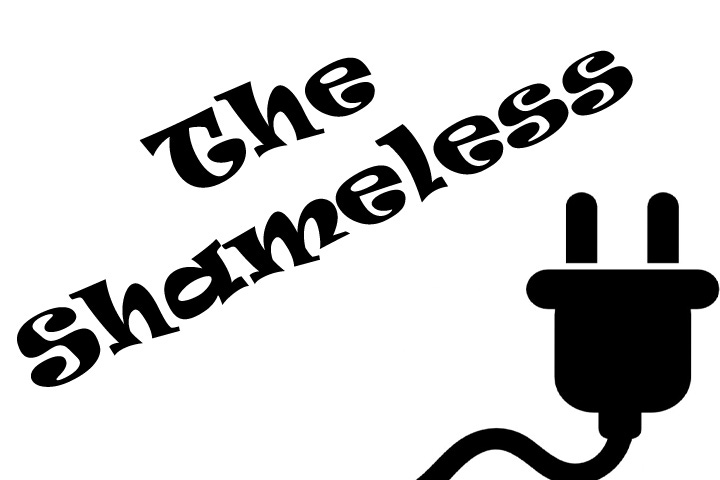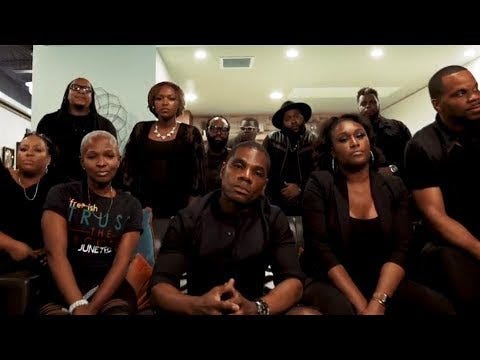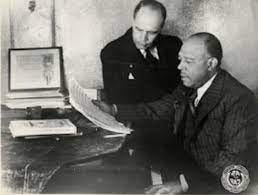Issue #139 Friday Funday September 16, 2022
No ads or annoying popups ever! So instead, please see the important information at the bottom of this post. Please keep those “Likes” and comments coming! Thanks!
Lift Ev’ry Voice and Sing, also known as the Black National Anthem, originated as a poem written in 1900 by NAACP leader James Weldon Johnson (1871-1938) and set to music by his brother, John Rosamond Johnson (1873-1954).
The hymn was first performed by a choir of 500 schoolchildren at the segregated Stanton School in Jacksonville, Florida where James Weldon Johnson was principal as part of a celebration of the birthday of President Abraham Lincoln.
Black Americans were less than fifty years removed from the end of slavery and were still suffering from the effects of Jim Crow laws, segregation, discrimination, lynchings, and restrictions on educational and professional opportunities.
The song encapsulated a solemn prayer and the hopeful appeal of Black Americans for true liberty and freedom.
The song was often taught to Black children in segregated schools and in Black churches in the South in the first half of the 20th century, but as Black people moved north during the Great Migration and schools were integrated, many did not even know about the song and grew up not learning it.
The song became a rallying cry during the Civil Rights Movement of the 1950s and 1960s.
As interest in African and African American History became more widespread and Black History Month became more universal, more and more people learned the song, and it is now being performed at various Black conferences and venues. It was performed at the 2022 Super Bowl just outside of the stadium.
When the song is performed, the audience respectfully stands just as they do for the American National Anthem.
As you read these lyrics, try to put yourself in the shoes of Black Americans at the turn of the 20th century:
Verse 1
Lift every voice and sing,
'Til earth and heaven ring,
Ring with the harmonies of Liberty;
Let our rejoicing rise
High as the list’ning skies,
Let it resound, loud as the rolling sea.
(Bridge)
Sing a song, full of the faith that the dark past has taught us,
Sing a song, full of the hope that the present has brought us;
Facing the rising sun of our new day begun,
Let us march on 'til victory is won.
Verse 2
Stony the road we trod,
Bitter the chast’ning rod,
Felt in the days when hope unborn had died;
Yet with a steady beat,
Have not our weary feet
Come to the place for which our fathers sighed?
(Bridge)
We have come, over a way that with tears has been watered,
We have come, treading our path through the blood of the slaughtered,
Out from the gloomy past,
'Til now we stand at last
Where the white gleam of our bright star is cast.
Verse 3
God of our weary years,
God of our silent tears,
Thou who has brought us thus far on the way;
Thou who has by Thy might
Led us into the light,
Keep us forever in the path, we pray.
(Bridge)
Lest our feet stray from the places, our God, where we met Thee,
Lest our hearts drunk with the wine of the world, we forget Thee;
Shadowed beneath Thy hand,
May we forever stand,
True to our God,
True to our native land.
Here is a version of the song as arranged by Kirk Franklin, one of the preeminent gospel directors and producers for the past 20+ years. Hearing this song gives me chills every time I hear it.
Fifty years ago, I was a 6th-grade teacher at a primarily white elementary school outside of Ann Arbor, Michigan. There were eight sixth-grade classes at the school, each with about 4-5 Black students.
This was only three years after the assassination of Rev. Dr. Martin Luther King Jr. Neither his birthday nor Black History month were official holidays yet.
I told my principal that I wanted to teach the Black 6th graders the song and that we would sing it over the PA system on Dr. King’s birthday.
I have a version of the song on a 45 RPM record performed by singer Kim Weston, and I took the students to my classroom over a few lunch hours to teach them the song. And yes, they proudly performed it for the entire school as our version of honoring Dr. King.
Here is a performance of the song dedicated to Dr. King with all three verses:
Have you previously heard of the “Black National Anthem?” Did you enjoy one or both of the videos? Let’s discuss this in the comments!
Help us to grow!
“We Are Speaking” is a reader-supported publication. To receive new posts and podcast episodes and to support our work, consider becoming a free or paid subscriber. We publish 7 days/week and 28+ issues/month. You. can upgrade your free subscription to the paid level. It costs monthly and annual paid subscribers less than 35¢ an issue. Thank you!

Thank you for checking out some of the books and businesses of the TeamOwens313 Global Creative Community:
Detroit Stories Quarterly (DSQ) Afro-futurism Magazine
The Mayonnaise Murders: a fantasy mystery novel by Keith A. Owens
The Global Creative Community Membership Site: Networking and Monthly/Weekly Topics for Independent Writers and Creative and Solo Professionals
The Global Creative Community Brand and Marketing Academy: Training and Group Coaching for Independent Writers and Creative and Solo Professionals
Pam’s Branding and Marketing Articles for Independent Writers and Creative and Solo Professionals on LinkedIn
“We Are Speaking” is a reader-supported publication. To receive new posts and podcast episodes and to support our work, consider becoming a free or paid subscriber.




